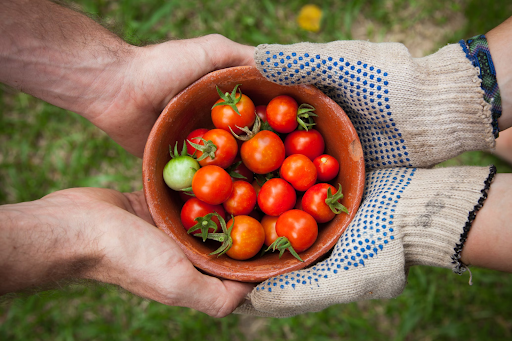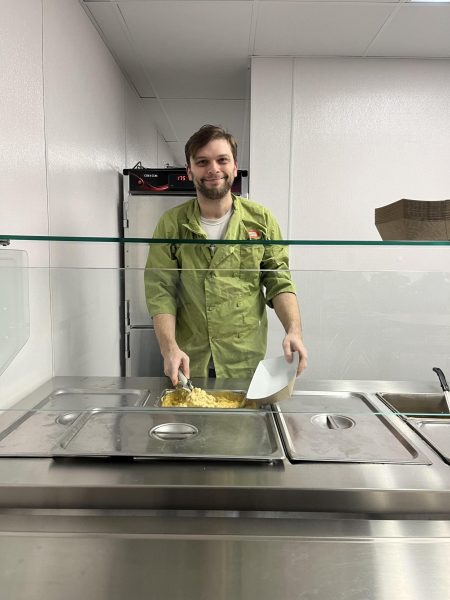
The bell rings at 12:27, hungry students flood the hallways in search of the comforting hot meal that awaits them in the cafeteria. Unlike most American schools that serve mystery-meat hot dogs, soggy fries, with some questionable steamed broccoli, Broomfield prioritizes fueling students with delicious and healthy food.
BHS is part of a district-wide program known as the Food School Project. Organized in 2009, the SFP was a part of BVSD’s vow to remove all highly-processed foods from its menu. This means any food containing high fructose corn syrup, added trans-fats, colorings and preservatives.
At the BVSD Culinary Center in Boulder, everything is crafted from scratch with wholesome ingredients sourced from local farms. The Food School Project works to incorporate the “farm to school initiative.” This is not only more sustainable, but it strengthens the ties of BVSD with the agricultural heart of Colorado.
BVSD’s monthly menu is carefully designed to match produce seasons while also aligning with specific dietary needs. To further diversify school meals, BVSD holds an Iron Chef competition in which students compete to have their unique recipe added to next year’s menu. Familiar lunch foods such as the Broccoli Cheddar Potato and the Green Chile Mac were both invented by the minds of BVSD students.
Kitchen Lead, Justin Thornton, brings together these masterful creations in Broomfield’s cafeteria. He is designated to analyze the popularity of each meal in order to optimize the lunch experience as well as minimize potential waste.
“In terms of food waste, we have certain standards that we sort of adhere to of keeping the order very close to what we serve,” said Thornton.

As part of the Food School Project team, Thornton works with local providers to have a year-round salad bar, abundant with seasonal fruits and vegetables. This offers an easy and free option for students to try new foods and add more essential nutrients to their meals.
In order to come full-circle, Broomfield also strives to integrate sustainable initiatives. Local sourcing is an important part of this, but so is waste management. The SFP has partnered with LeanPath which is an innovative way to track food waste. Boulder Valley is home to 11 of these systems and has plans to expand further across the district.
Although BHS lacks LeanPath technology at the moment, sustainability is still prioritized in the cafeteria.
“Admittedly at the high school level, there’s a little bit more trash involved with service because we don’t use reusable trays, but we are working with Eco-Cycle to try and source some compostable or easily recyclable plastic utensils,” said Thornton.
Food is a crucial and often an overlooked aspect of productive learning. Broomfield’s individual effort and its cooperation with the School Food Project creates a foundation for thinking to flourish.
“I think we’re all pretty proud of the work we do here, and I hope it translates to better learning for you guys,” said Thornton.















Jan Emery • Feb 15, 2024 at 12:47 pm
Being a Home Economics major from Purdue I really like this article!